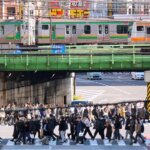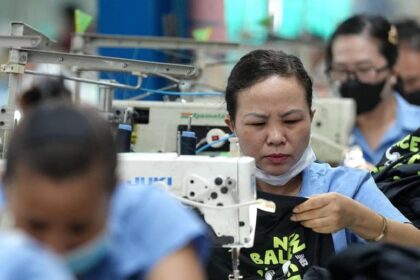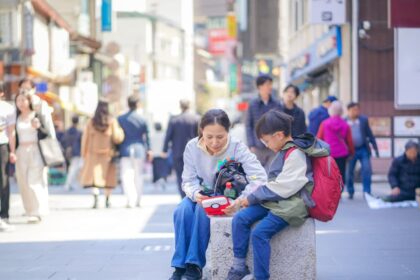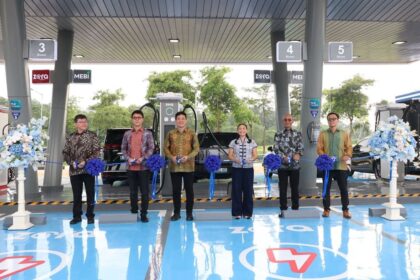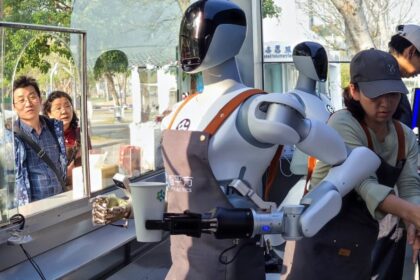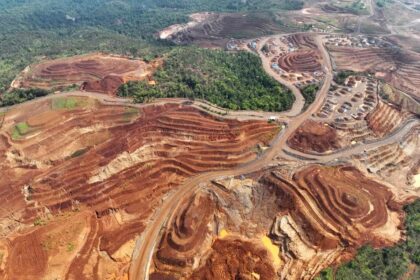The End of an Era: Nissan’s Oppama Factory to Close by 2028
In a move that marks the end of a significant chapter in Japan’s industrial history, Nissan Motor Co. has confirmed it will shutter its iconic Oppama factory in Yokosuka, Kanagawa Prefecture, by March 2028. Once a symbol of Japan’s postwar manufacturing prowess and innovation, the Oppama plant’s closure is more than a corporate restructuring—it is a reflection of the profound changes reshaping the global auto industry and Japan’s place within it.
- The End of an Era: Nissan’s Oppama Factory to Close by 2028
- Why Is Nissan Closing the Oppama Plant?
- The Human and Economic Impact on Yokosuka and Beyond
- From Postwar Miracle to Global Competition: The Historical Significance of Oppama
- What Happens Next? Production Transfer and the Future of the Site
- Broader Implications: Japan’s Manufacturing Decline and the Global Auto Industry
- In Summary
Opened in 1961, the Oppama factory was Nissan’s first full-scale integrated assembly plant and quickly became known as the company’s “mother plant.” Over its 64-year history, it produced more than 17.8 million vehicles, including some of Nissan’s most celebrated models such as the Bluebird, March, Cube, and the pioneering Leaf electric vehicle. The factory’s closure is part of Nissan’s sweeping global restructuring plan, which aims to streamline production, cut costs, and restore profitability after years of declining sales, mounting debt, and fierce competition from new players in the electric vehicle (EV) market.
Why Is Nissan Closing the Oppama Plant?
The decision to close Oppama is rooted in a combination of economic pressures, industry shifts, and strategic necessity. Nissan, once a leader in global automotive innovation, has faced a series of setbacks in recent years. Sales have slumped in key markets like the United States and China, while the company has struggled to keep pace with the rapid evolution of EV technology and the aggressive expansion of rivals such as Tesla and Chinese automakers.
According to Nissan CEO Ivan Espinosa, the closure is “the most difficult decision of my career,” but one that is essential for the company’s survival and future growth. Under the “Re:Nissan” recovery plan, the automaker will reduce its global production capacity from 3.5 million to 2.5 million vehicles (excluding China) and consolidate its manufacturing footprint from 17 to 10 plants worldwide. The Oppama plant, along with the Shonan plant of Nissan’s subsidiary Nissan Shatai, was selected for closure due to aging facilities, declining production volumes, and the need to improve efficiency and profitability.
Currently, Oppama produces only the Note and Note Aura models, a sharp decline from the five models it built as recently as 2019. The plant’s operating rate has fallen to around 50%, reflecting weak domestic demand and the broader trend of Japanese automakers shifting production overseas. Nissan’s domestic output has dropped from over 2 million vehicles annually in the 1990s to about 640,000 in 2024, with Japan-produced cars now accounting for just 20% of the company’s global output.
The Human and Economic Impact on Yokosuka and Beyond
The closure of the Oppama plant will have far-reaching consequences for the city of Yokosuka and the surrounding region. Nissan is the city’s top employer and one of its largest taxpayers, directly employing around 2,400 workers at the plant and indirectly supporting thousands more through its network of suppliers, subcontractors, and local businesses. In total, Nissan is estimated to employ nearly 10% of Oppama’s 29,700 residents.
Local officials and business owners are bracing for the economic shock. Kanagawa Governor Yuji Kuroiwa has instructed his administration to gather information quickly and work with Nissan to mitigate the impact. The region is home to more than 1,700 of Nissan’s 13,000 business partners, and the ripple effects are expected to hit everything from bento shops and shopping streets to logistics firms and service providers. Many of these businesses have yet to recover fully from the COVID-19 pandemic, and the plant’s closure adds another layer of uncertainty.
For workers, the transition will be challenging. Nissan has pledged to offer voluntary transfers, reskilling opportunities, and support measures to help affected employees find new roles, either within the company or elsewhere. Early retirement packages are being offered, particularly to administrative staff. However, for many, the prospect of uprooting families or commuting long distances to other Nissan facilities is daunting. As one longtime worker told Reuters, “I feel really bad for the workers who have families and children, who bought houses and have mortgages to pay. Subcontractors will also have a hard time.”
From Postwar Miracle to Global Competition: The Historical Significance of Oppama
The story of the Oppama plant is intertwined with Japan’s rise as a manufacturing superpower. Built on the site of a former naval airfield and U.S. military scrapyard, the factory was a testament to Japan’s ability to transform adversity into opportunity. It pioneered the mixed-flow assembly line, allowing multiple models to be built on the same line—a major innovation at the time. The plant also housed a four-kilometer proving ground, a wharf capable of shipping 80,000 cars a month, and advanced facilities for research and crash testing.
Oppama was the birthplace of the Nissan Leaf, the world’s first mass-produced electric vehicle, which debuted in 2010 and became a global bestseller before being overtaken by Tesla. The plant’s motorsports program helped launch Nissan’s international rally successes with models like the 510 Bluebird and 240Z. For decades, the factory was a source of pride for Yokosuka, mentioned in school textbooks and serving as a catalyst for the city’s transition from a military to a civilian economy.
But as Japan’s dominance in electronics, semiconductors, and automobiles has waned, so too has the centrality of factories like Oppama. The rise of global supply chains, overseas production, and new competitors has eroded the advantages that once made Japan’s manufacturing sector the envy of the world.
Community Voices: Pride and Uncertainty
For many in Yokosuka, the closure is deeply personal. Akio Kamataki, who runs a standing bar near the station that has been in his family since 1925, reflected on the plant’s importance:
“The Oppama factory is a source of pride for locals. I still buy Nissan cars and I like them. I haven’t driven other brands recently, but I like Nissan’s brakes—the way they respond.”
Others worry about the future. Kunito Watanabe, a local trucking company employee, noted,
“As long as they are making cars here, we’re okay. But if that stops, my company will shut down.”
What Happens Next? Production Transfer and the Future of the Site
As part of the restructuring, Nissan will transfer production of the Note and Note Aura models to its more efficient Kyushu plant in Fukuoka Prefecture. This facility is expected to absorb much of Oppama’s output, with the goal of raising its utilization rate to 100% and reducing overall manufacturing costs in Japan. The Tochigi plant, which recently received significant investment and houses a test course, will remain operational and continue producing the Leaf and other models.
Other facilities in the Oppama district, such as the Nissan Research Center, GRANDRIVE proving ground, crash test facility, and Oppama Wharf, will remain open and continue operations. Nissan has stated it will explore a wide range of options for repurposing the main factory site, including potential collaborations with external partners. Notably, there were reports of discussions with Taiwanese electronics giant Foxconn to use the plant for electric vehicle production, which could have spared the facility from closure. While those talks have not resulted in a deal, they highlight the growing trend of cross-industry partnerships as traditional automakers adapt to the EV era.
Responsible Restructuring and Community Support
Nissan has emphasized its commitment to responsible restructuring and community engagement during the transition. The company is working closely with labor unions and local governments to ensure fair treatment of employees and minimize the economic impact on Yokosuka and surrounding areas. CEO Ivan Espinosa expressed gratitude to employees, the local community, and partners for their support, stating that Nissan will continue to maintain a presence in the Oppama area and support the community as it navigates this period of change.
Broader Implications: Japan’s Manufacturing Decline and the Global Auto Industry
The closure of the Oppama plant is emblematic of broader trends affecting Japan’s manufacturing sector and the global auto industry. Once the world leader in everything from chips to TVs and cars, Japan now faces stiff competition from abroad, particularly in the fast-growing EV market. The country’s automakers are grappling with the need to invest heavily in new technologies, adapt to shifting consumer preferences, and respond to geopolitical pressures such as tariffs and supply chain disruptions.
For Nissan, the restructuring is a bid to regain relevance and financial stability after years of management turmoil, failed partnerships, and declining competitiveness. The company’s willingness to cut jobs and close plants at home signals a break from Japan’s traditional lifetime employment model and the social contract that underpinned the nation’s postwar economic miracle.
Industry analysts note that the consolidation of production and focus on leaner, more efficient manufacturing could help Nissan improve profitability and better position itself for the future. However, the transition will not be easy, and the fate of communities like Yokosuka hangs in the balance.
In Summary
- Nissan will close its historic Oppama factory in Yokosuka, Kanagawa Prefecture, by March 2028 as part of a global restructuring plan.
- The closure will impact around 2,400 direct employees and thousands more in the local economy, with production shifting to the Kyushu plant.
- Oppama has produced over 17.8 million vehicles since 1961 and was the birthplace of the Nissan Leaf, the world’s first mass-produced EV.
- The decision reflects broader challenges facing Japan’s manufacturing sector, including declining domestic demand, global competition, and the shift to electric vehicles.
- Nissan is working with local officials and unions to support affected workers and explore future uses for the site, while maintaining other research and testing facilities in the area.
- The closure marks a turning point for both Nissan and Japan’s industrial legacy, highlighting the need for adaptation in a rapidly changing global economy.




